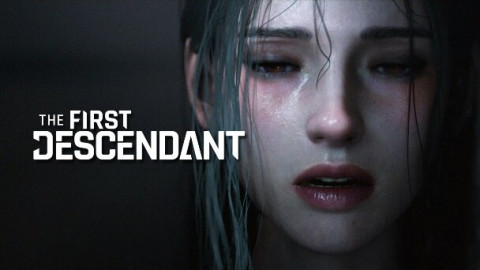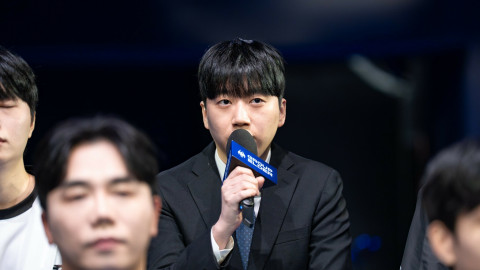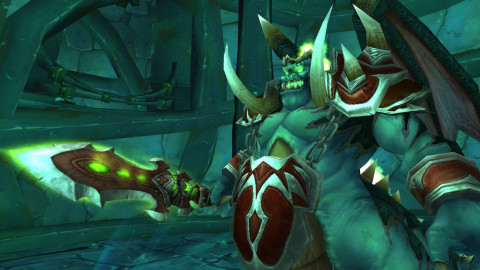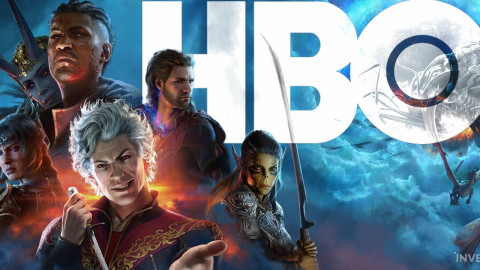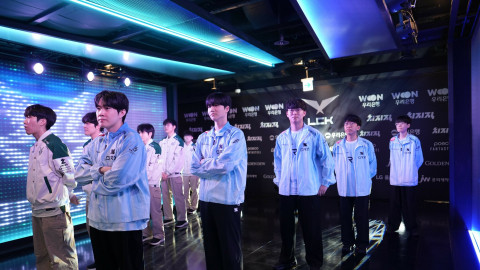
After five trials, DRX head coach Kim “cvMax” Dae-ho will receive a final verdict from the court in February. Whatever the verdict, however, it will not affect his 5-month suspension from the Fair Esports Commission.
On Jan. 28, cvMax was interrogated as the accused. Before the trial began, the prosecution demanded a 1,000,000 KRW fine (approx. $895) while cvMax pleaded “not guilty”.
The interrogation started with cvMax’s attorney, who asked him about the intention of the feedback and the effects and results of cvMax’s coaching. Most of the prosecution’s questions were about whether there was actual physical contact or not. The court also asked cvMax about his feedback style: how he used to give feedback and how other head coaches instruct their players — if they also shake players by the shoulder or hit the armrests of their chairs.
In the closing statement, cvMax’s attorney said:
“This indictment doesn’t accord with the substantial truth. The victim [Sword] continued to be close with the accused [cvMax] even after Feb. 9 and hadn’t mentioned that the feedback was inappropriate to any other coaches or players. It could be seen in the phone call between the victim and the accused on Sep. 9, which was only two months before the lawsuit, that the two people were very close.”
“The reason that the victim ended up suing the accused was from director Cho Gyu-nam’s attempt to estrange the accused from the players during the process of firing him from the team. After the victim was criticized severely by the fans due to the accused’s stream and interviews, and as director Cho was cornered from the Kanavi incident, it seems that Cho conciliated the players with lies to make conflicts with the accused.”
“The accused did not exceed the boundary of rational coaching methods. This is clear as the accused was always close with the players, including the victim.”
CvMax also gave his last statement:
“I spent two years with the players, caring for each other. If this manipulation by director Cho becomes guilty of assault, I don’t know what I am to do afterward. I also do not think that purposes justify actions. In that regard, I’ve always reviewed myself. It’s such a shame that everything came to this point.”
“I am good at communicating, interacting, and getting along with others, and I’ve proved myself by getting to the highest point with those abilities. But it really hurts my pride that he sued me that my feedback which I feel proud about is assault. Even so, there should have been things I lacked, so I’ll review myself further and improve my feedback in the future.”
Below is a translation of the full interrogation.
[Before the interrogation began, the attorney requested to play a recorded file. The recorded file was a phone call between cvMax and Sword on Sept. 5, 2019.]
cvMax: Hey, Sung-won. What are you doing?
Sword: Huh? Why?
cvMax: [Playfully] What are you doing~? What’s up?
Sword: I’m just playing.
cvMax: Okay, when you’re taking a break, you should rest well.
Sword: PC bang.
cvMax: Are you gaming with friends?
Sword: There’s no other game to play. It seems LoL is a godlike game.
cvMax: Sung-won, it’s nothing much, but just… You did a good job.
Sword: Huh? I didn’t do much.
cvMax: Everyone. You all did a good job.
Sword: Hyeong, is your mentality okay?
cvMax: I’m saying this personally — you’ll do well. Whatever you do, you’ll be enough.
Sword: Hyeong, you’re scaring me, saying things like that. What’s up?
After playing the record, cvMax’s attorney started asking cvMax questions.
Was there a reason you called Sword on Sept. 5, 2019?
Back then, I was fired by director Cho Gyu-nam, but the players didn’t know. Since I was fired, I wanted to tell the players that they had worked hard, that they’re cool and I’m proud of them, and that they’ll do well in the future. I thought they would be surprised because they would hear about the news out of nowhere. I talked with other players as well. I wanted to tell them to prepare well for Worlds even if I wouldn’t be there.
You said that Sword was the second player you called. Was that because you were closer with Sword?
I thought I was close with Sword back then. Sword may have lacked in-game-wise, but that only made me try harder, using more energy for him. I think that’s why I called him second.
It seems that Sword feels sorry for you as you’re telling him that you were fired. And he says that he’ll keep working hard even without you as head coach.
Yes.
Until September 2019, did you have a good relationship with Sword?
Yes, we did.
Did you feel that you had grown apart at the least?
No, I did not.
[In the original Korean transcript, the prosecutor asks both questions in a single sentence and receives a single-word affirmative answer from cvMax. We've broken it down during translation for clarity — Ed.]
After the scrim on Feb. 9, 2019, with an important game upcoming, you thought that Sword needed strong feedback to tend to his mentality and improve his performance. Besides this, did you remember anything that you’d done to be sued for assault?
No.
[Submitting September 2018 Inven interview] You teach the players “gladiator mentality”. Even if they win 100 fights, a single loss will cost them their heads. Why do pro gamers have to have a “cyber gladiator mentality”?
Personally, I think being a pro gamer is a very lucky job — a job that gets much more reward, compared to their efforts. They get so much love from the fans. More than anything, when the players practice intensely, they can play comfortably in real battles. I wanted to raise the players to the top level so they can enjoy the fans’ love and rewards.
The “gladiator mentality” sounds like having a strong will to win in a fiercely competitive environment.
I said that in the interview because I wanted to tell the players to value each and every match. The LCK is a stage that has gathered 100 people from the top 0.1% and only 0.1% among them really succeed. All other players work hard to be special. To be the top among them, the players have to value each game. And then have fun playing when they’re not in the games. That’s why I emphasized having a “gladiator mentality”.
Also in this article, you mention strong feedback. What is strong feedback?
To become special, and to get to the very top, the process is important. All players are human — biologically, if a resolution lasts three days, this is actually doing a good job. How do you keep a resolution for three days? I try to keep the players alert and on their toes, so I use an emphatic tone to keep their spirits up. While doing so, I compliment what they did well, using the stick and carrot method so they can improve. I think the aforementioned strong feedback means this kind of feedback.
So does the strong feedback mean that when the players can’t maintain their alertness or will to win, you stimulate them as their head coach?
Yes. Saying provocative remarks that only wastes their mentality without any meaning might have an instant return, but it’s bad in the long run. I only used strong feedback when it’s logical and when there was a specific reason.
Did you only use strong feedback when you thought it was necessary and when you were sure about the effect of the feedback?
Yes.
You emphasized “playing without shotcalls” in the interview. What is it?
This may sound weird, but it’s about telepathy — identifying and understanding each other’s intentions. In LoL, the outcome can be decided in 0.1 seconds while you’re trying to decide. So I prioritized the trust between the players. If they fully trust each other, they tend to have similar thoughts. It means practicing quietly so that they can know what each other would do even without shotcalls. I taught the players this way because it could make the players trust each other more and because I thought it would lead to better performance.
The synergy between the five players is important as it’s a 5v5 team game. The five players have to make the best move in certain situations. Are you training them not to react to words, but to think as one?
Yes.
You had said that you had a horizontal relationship with the players, not vertical, and wanted the players to ask back when they had questions?
Yes.
Did you tell the players, “Don’t just follow if you don’t understand. Have you no doubts about what I say? Don’t live passively”?
I think the players should be proactive. I told them to think about their situation. “Is this right?” “Is what the head coach is saying right?” “Is what cvMax is doing to me right?” That way, they can gain more while we debate. I was confident in proving myself. It’s important for my job to get good results. I thought having debates where the players could speak freely would help improve the results. Also, I was the youngest among the head coaches, so I thought this kind of horizontal relationship was more proper.
In LoL, if a player lacks practice or underperforms, does the head coach need to make him concentrate through strong feedback, like in traditional sports?
It’s different for each player. Some need care. If they think the care is cheesy or immature, you have to find a different way to stimulate their desire for winning. The feedback was always different.
You said that there could be “acting” during strong feedback. What does “acting” exactly mean and why do you need it?
What I always said is that the head coach is a supporter. It’s a support position to the players so that they can perform. So if I need to show anger, I show anger; if they need compliments, I compliment them. It’s all to bring the best situation. The purpose was to tell the players that if there are situations I need to be angry, then I will be angry.
Why does it need to be intense?
If the players know that it’s actually “acting”, there’s no use. I need to consume my emotion to make the best situation. With my genuine emotions, I tried to bring up their will for winning. That way, we were able to get good results and the players and coaches would have a win-win relationship.
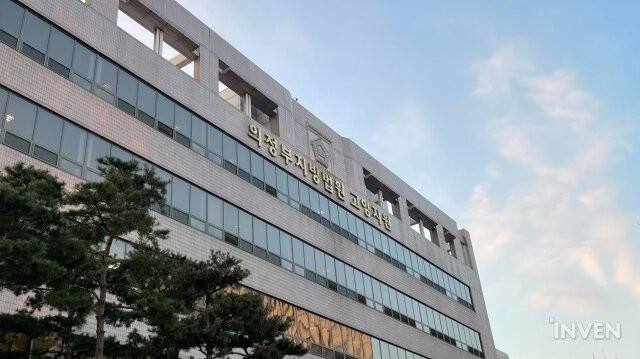
If the player doesn’t know why they’re being coached in general ways, if they just agree without thinking, and they make the same mistake the next time, isn’t that the situation where the player needs strong feedback?
When a player doesn’t know why the coach is saying things, he’s done. That has seldom happened. Whether it’s strong feedback, or “stick and carrot”, the important thing is the trust between the player and coach.
There’s no use giving feedback to a person who hates me. When I was in the army, I wasn’t scared when a senior that I hated criticized me. But if a senior that I trusted just said, “Hey, Dae-ho”, it was scary. That was when something bad really happened.
How do you check if the player is understanding the feedback?
This could sound weird, but I know it when I see their eyes. I think I’m really good at taking a hint. We lived together for 1-2 years, so I just know if the player is just hearing formally, if he’s empathizing, or if he’s really listening in. I think that’s one of the reasons that our results were good.
You said that other players received strong feedback as well. Did they think of you as a great teacher and thank you?
I remember the players and their parents saying that.
Did some players refuse high salaries from other teams and follow you to the new team you went to?
Yes.
If you compare Sword’s solo queue points around February 2019 to other general LoL pro gamers, how were they?
With just the exact points, Sword was the lowest within the team. It was low, but from what I remember, he was the oldest among the players, so he carried an important role out of the game of bringing the players as one. In-game-wise, he lacked a lot.
Why did Sword underperform in the game? Was it because he didn’t practice enough or didn’t want to win as much?
Today’s Sword was always better than yesterday’s Sword. It was just that he wasn’t as good as the other four players — he was still just an average good player. But I’ve always said that you can’t get to the top if you’re just an average good player. My role is to make an average good player into the best player, but I wasn’t able to do it perfectly.
Why did you try to improve Sword instead of just changing the top laner?
I’ve actually said this before. In my shoes, if a player underperforms and I just change him, there are no problems and I don’t have to use up any energy, so it’s simpler. But I liked Sword personally. I had told him in person, “It only means something if I go to Worlds with you. I can’t let you go because I want to win Worlds with you.” So I kept giving him feedback.
Did you give feedback to improve results?
If I changed Sword to a better top laner, I wouldn’t need to give him feedback and the possibility of winning Worlds would go up. But I wanted to win Worlds with the players I was with then. Also, I didn’t like changing players. I gave feedback so that I could be smiling at the end with the people around me.
Do you remember any specific details from the feedback on Feb. 9, 2019?
I don’t remember the details.
Sword says that you struck the armrest of his chair and pushed him holding between the neck and shoulder.
I remember hitting a chair. And I do remember holding a player as if I was appealing something. But I don’t know if it was Feb. 9, 2019.
You said that you need “acting” in feedback. Was that feedback also an act?
Acting doesn’t mean that I express anger, thinking “I need to seem angry here” like a psychopath. I get maximum effect through bringing my emotions up. It depends on what “acting” means.
Did you give feedback that way because you thought that was the most appropriate and effective?
I think I did because I thought that way.
Did you have any bad feelings towards him?
Even If I had feelings toward someone, I never showed anger. Players and coaches have to both improve to win-win. The players have to get results for me to get paid better. I spent my energy hoping that the player succeeds.
Do you comfort the players after feedback?
I did say, “I’m mad at your actions that lead to losing, your habits. I’m not mad at you as a person. I hope you can move forward by thinking this separately.” If this is comforting players, I’ve done it many times.
After Feb. 9, 2019, until the day you were fired on Sept. 25, did Sword express any complaints about that feedback or ask for you to apologize?
Not once.
Did you hear from other people that Sword was suffering from that feedback?
I never heard that. There wasn’t even the slightest hint. I just thought we had a good relationship.
Did director Cho mention that he’ll fire you before he actually did on Sept. 25?
Yes.
Did director Cho fire you for lack of results just before Worlds?
On the surface, yes. He and I had a lot of conflicts.
When director Cho fired you, did he say, “When I asked the Griffin players, no one thought that cvMax was fit for Worlds and they agreed with firing you”?
It was similar, but a bit different. He said, “The players didn’t need you so shouldn’t you leave?” and pressured me. I said, “That can’t be true”.
At that time, you couldn’t believe it, but when you checked with the players, no one objected. Were you disappointed by that?
The players didn’t say much.
You thought that going to Worlds without trust фром the players wasn’t possible and couldn’t react properly to director Cho. Later on, did you stream Worlds in Korea?
Yes.
Did you praise and cheer for the Griffin players because you treasured them?
Yes.
Do you think Sword’s open criticism was because of misunderstandings?
Yes.
After Sword’s interview, did you talk on your stream about the actual reason you were fired, the conflicts with director Cho, and your disappointment toward Sword?
Yes.
Did it turn out that the players heard from director Cho that you left on your own behalf, and they were disappointed and felt betrayed that you left irresponsibly before Worlds?
Yes.

As the fans learned about what happened through your stream and criticized the players for not protecting their head coach, did the players object?
Director Cho told the players, “cvMax is exposing strategies and hurting the players”. The players just heard that.
Did the fans criticize Sword severely after that?
Yes.
Do you think Sword held a grudge about you from this point?
Yes.
On Oct. 16, 2019, did Kanavi come to you and tell you about how director Cho forced him to move to JD Gaming, and did you reveal that?
Yes.
Did what you revealed turn out to be true after an investigation from the LCK?
Yes.
Another player’s mother said, “I think it’s about my child when they mention ‘the violence issue’. They asked to sue you with verbal violence, but I told them to keep us out of it.” Do you think this was suggested by director Cho?
Yes.
At that time, director Cho was in a critical situation because you revealed the Kanavi incident. Does it seem that he coaxed the players and tried to make up something to attack you?
Yes.
Before you were fired, there were no problems between you and Sword, and you thought there wouldn’t be any problems afterward as well, correct?
Yes.
If your feedback was out of the ordinary, another player’s mother wouldn’t have thanked you.
I don’t know since I’m not them. But when other players’ parents said that they’d help me, I’d just tell them, “Do as you will. Even if it’s not advantageous for me.”
You said that if your feedback was too strong or ineffective, the players were to tell you. Do you wonder why Sword didn’t bring that up immediately?
Yes.
If Sword protested at that time, would you have changed the way you gave feedback?
There’s a high chance that I would have.
How do you feel about Sword suing you?
At first, I was really angry at director Cho. About Sword… It’s hard to show how I feel. I have mixed feelings that I wasn’t able to control this situation on my own behalf.
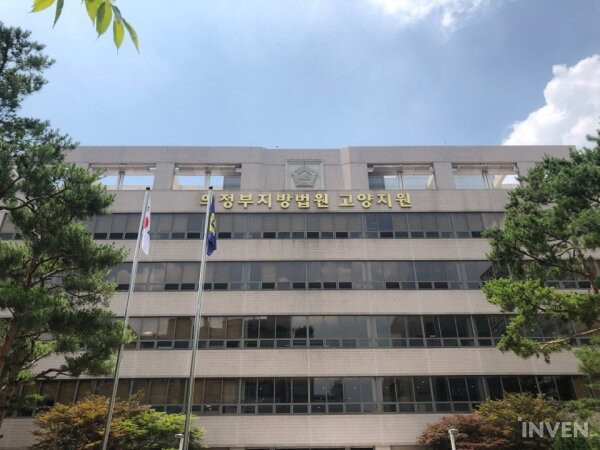
The prosecutor followed up with more questions.
Although you don’t recall the exact date, did you ever hold Sword by the shoulders and shake him?
Yes.
How many times?
Holding a player by the shoulders and shaking him is impactful feedback. I don’t remember specifically which player I gave that feedback to. If I include all the players, I think it’s about once a month during the season.
Do you remember dragging the chair?
I remember dragging the chair to my monitor for feedback.
Other than grasping the shoulder or pushing the chair, did you ever make any physical contact?
I think men shouldn’t raise the hand above the shoulders to men even if it’s a compliment. I had a conflict with director Cho because of that once. I told him not to pet my head or pinch my cheek. I told him to just use words.
Did you really tell the players that you would give strong feedback in advance?
We’d have morning meetings. During the meeting, I remember telling them to tell me if my feedback was uncomfortable or felt unnatural because then, the feedback would be ineffective, so I asked them to tell me if it was too rough or painful.
Did you say that you’ll get physical during feedback?
Never.
Does the head coach have full authority over the starting roster?
The prowess is number one. Other than their abilities, players that had been with me would have better synergy, so I also consider that.
As a player, playing in a game is very important. It seems that it could be difficult to object to your strong feedback.
I don’t think the atmosphere was like that.
The attorney asked additional questions after the prosecutor’s questions.
“Holding a player by the shoulders and shaking him”, isn’t as forceful as shaking his head up and making the players come to their senses, correct?
There are some situations like that. Usually, I plead, “You really can’t play this way” and let the player know how serious the situation is.
By “pushing the chair”, was it just to bring the player close to the monitor?
It’s alright if I just tell the player to drag his chair to the monitor. But pushing it myself would be “acting”. It could be a way of saying, “I’m mad at your performance” so that I could make him aware when I pull his chair. I thought this way, the player could concentrate more.
You said that your rule is not to make physical contact. Have you ever slapped or physically punished a player?
I have never done such a thing.
Even if the head coach has full authority over the starting roster, if you take out a starting member, wouldn’t it be wrecking the game before it started?
Changing a starting member could be a direct hit to the players, so I discuss it with the players. I even discuss it with the member that could be substituted. For example, if it was Sword, we’d discuss if Doran would be better. Sometimes, the player comes to me and suggests being substituted because sometimes it’s hard to face a specific player. I can’t impose my personal feelings on the roster and change a player. It’s impossible.
Did anyone ever ask to change the feedback style?
In my memory, twice. Both times, it was Sword. In May 2019, during the summer season, I remember him saying, “I know what you’re asking for, but it’s hard for me to keep up to it.”
How did the feedback change afterward?
It was changed so that I just deliver him information. But if I didn’t give him any feedback, he would feel that he’s left out of the team, so I was measured. After that, his performance and results lacked, so we subbed Doran in his place. After the substitution, he got even less feedback.
The judge questioned cvMax next.
What was the reason when Sword asked for a change of feedback style in May 2019?
I don’t remember specifically, I think it was something like, “When you say “acting”, I now know it’s acting, so it’s not that effective anymore. Could you reduce it?” My reaction was, “Is that right?” while smiling awkwardly.
When Sword talks about acting, does he mean hitting the chair or shaking the player by holding their shoulders?
That’s what I know. He had said that he was struggling from the intense verbal feedback.
If it was in May 2019, were you together for more than a year?
Yes.
During that year, did you use strong language to Sword during feedback?
During the season, we exchanged thoughts about the game. I complimented him on what he did well and criticized him for what he didn’t. In regards to Sword, we talked about what he didn’t do well more often.
You said that in May, it was the second time he asked for a change of feedback. When was the first?
I don’t remember when, but I remember that when I gave strong feedback, Sword said that he needed some time to think. It could have been that he was underperforming because I acted angrily, so we tried not giving such strong feedback for a period of time.
Do you remember anything specific about the incident on Feb. 9?
I only knew it was Feb. 9 because of the lawsuit. I didn’t even know the scrim was against Gen.G that day until I got informed. Looking at the replay, I remember that Sword died a lot at the top lane during that scrim.
Did you ever give feedback around the sink to any players including Sword?
I didn’t think of where we were when I gave feedback. The room is all connected. Usually, it’s in front of the monitor.
When do you give feedback in a separated area?
Usually, in those situations, I comfort the player. We speak our minds in a separate room and talk about what we’re aiming for. Usually, I try to comfort the player and talk about things. When everyone was together, I touched them strongly. When it was just the two of us, it was like counseling.
Do you remember holding anyone else by the shoulder and shaking them?
I remember pleading. I held someone by the shoulder and said, “You really can’t play this way.”
Was it with two hands or one hand?
I think it was two hands. If it was one hand, it’s kind of awkward. It would be like I was looking for trouble. I don’t know what I would be intending if it was one hand.
Did you strike the chair or desk?
Actually, I really don’t know what happened at all on February 9. Considering that I acted consistently, I probably struck it hard.
Did you hit the desk first and then the chair or the chair first and then the desk?
I don’t remember, but I think it was the desk.
Was Sword sitting at that time?
I think so.
How do the other head coaches coach?
I heard that they often scream, swear, or strike the desk.
Do they also hold the players by the shoulder and shake them?
That, I haven’t heard of.
The attorney clarified some statements with additional questions.
When you answered, “touched them strongly”, there could be a misunderstanding. Did that mean you touched them with your hands or does it mean verbally?
It means that if they made a mistake, I’d get directly involved to modify their mistakes.
You said that Sword gave his opinion about your feedback about twice.
To my memory, yes.
In that case, it seems that you completely separated giving strong feedback in the game as a coach, and were really close with the players out of the game.
I think we were close like older and younger brothers. In the game, I could be scary, but out of the game, I thought we could joke around without hesitation.
Did Sword ask for time to fix things himself instead of strong feedback?
I respected his thought.
So did you think together with the players of how the feedback would be effective?
Yes.
The feedback was just between the coach and the player. It seems that the players also evaluated how effective the feedback was.
I think we were able to get good results because we checked those aspects. I don’t think that a correct goal justifies what happened in the process. I take pride in what I think is right and I kept it.
This was the final trial for cvMax on this subject. The final verdict will be given on February 18, 2021.

Sort by:
Comments :0




